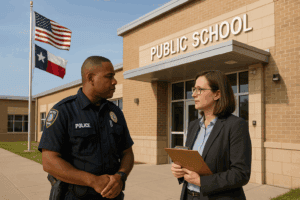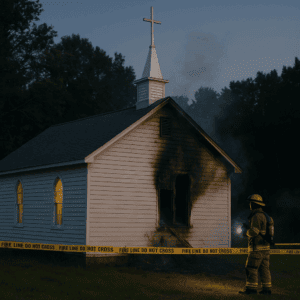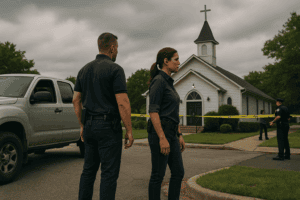Understanding Insurance Exclusions for Security Teams
Establishing a security team in your church brings important considerations, especially concerning your insurance coverage.
An armed team introduces additional risks that may not be included under your current policy.
Often, insurance providers will review your security protocols to determine if coverage is available.
If your practices don’t meet best practices, exclusions may apply, and you’ll usually receive recommendations for improvement.
Factors That Can Lead to Insurance Denial
Several factors can make a security team ineligible for insurance coverage:
- Lack of comprehensive security policies and procedures
- Inadequate or non-existent training programs
- Absence of thorough background checks for team members
- Security team members under the age of 21
Concealed Carry Considerations
Deciding whether to allow concealed carry within your church is an important decision.
It is crucial to comply with local and state laws and to document your policies thoroughly.
It should be stated that anyone legally carrying a concealed weapon who is not part of the safety and security team is doing so independently and not under the authorization of the church.
Volunteer Church Security Teams
For instance, Texas law allows churches, synagogues, and other places of worship to establish security teams without state permission if the individuals are unpaid volunteers, serve only on the premises, and do not wear badges or uniforms indicating they are security or law enforcement officers.
Volunteer security team members may carry firearms as allowed by state law.
Considerations for Implementing Armed Volunteer Security
Before implementing an armed security program, consider these essential steps:
- Understand State Laws: Familiarize yourself with state regulations regarding weapons and the necessary licenses, if any.
- Communicate Clearly: Inform your members and visitors about the presence of safety and security personnel to prevent alarm or confusion.
- Conduct Background Checks: Ensure all armed individuals undergo thorough criminal background checks.
- Regular Training: Mandate regular and specific training.
- Develop a Detailed Security Plan: Create comprehensive policies and procedures that address all aspects of your security operations.
- Insurance Consultation: Engage with your insurance provider early in the process to understand coverage requirements and ensure compliance.
Best Practices for Security Team Management
Implementing best practices can significantly enhance your church’s safety and security and align with insurance requirements:
- Document Everything: Keep detailed records of all security measures, including training, background checks, and policy updates.
- Regular Reviews: Periodically review and update your security protocols to ensure they meet current best practices and other legal requirements.
- Engage with Experts: Consult with security professionals to continuously improve your security measures and address any gaps.
- Training and Drills: Conduct regular drills and training sessions to prepare your team for various scenarios, ensuring they remain proficient and ready to respond effectively.
- Risk Assessment: Perform regular risk assessments to identify potential vulnerabilities and update your security plan accordingly.
- Community Awareness: Educate your members and visitors about your security measures and the role of the safety and security team, creating a sense of safety and cooperation.
By following these considerations, you can develop a robust security framework that improves the safety of your church while complying with insurance requirements and legal standards.
For more insights and detailed guidance, visit Risk Strategy Group.








